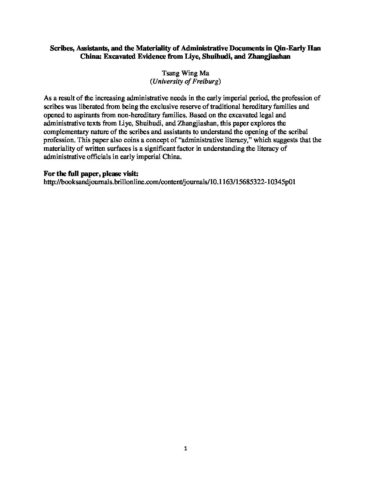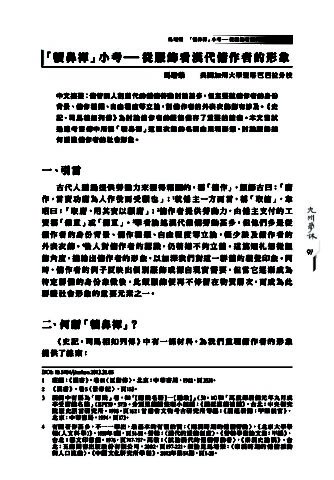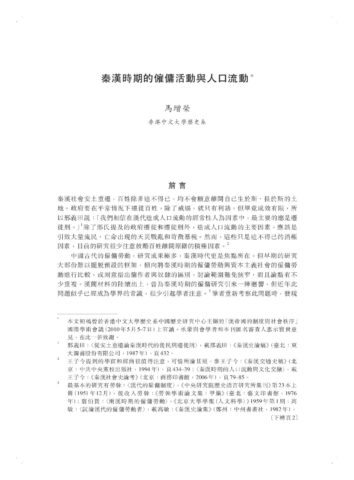Scribes, Assistants, and the Materiality of Administrative Documents in Qin-Early Han China: Excavated Evidence from Liye, Shuihudi, and Zhangjiashan
As a result of the increasing administrative needs in the early imperial period, the profession of scribes was liberated from being the exclusive reserve of traditional hereditary families and opened to aspirants from non-hereditary families. Based on the excavated legal and administrative texts from Liye, Shuihudi, and Zhangjiashan, this paper explores the complementary nature of



